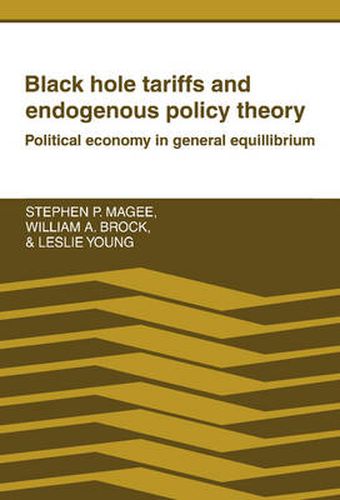Readings Newsletter
Become a Readings Member to make your shopping experience even easier.
Sign in or sign up for free!
You’re not far away from qualifying for FREE standard shipping within Australia
You’ve qualified for FREE standard shipping within Australia
The cart is loading…






This book provides a special interest theory of protection, developing a full general equilibrium theory that explains the distribution of income with goods markets, factor markets, lobbies, political parties, and voters all pursuing their self interest. This probabilistic voting model shows how well-organized groups can use seemingly irrational government policies to exploit poorly organized groups. Given rational predatory behaviour between these groups, protection or any other redistributive policy that improves the chances of election of a party increases political efficiency. This can create an economic black hole, conditions under which an entire economy can disappear into lobbying. Paradoxically, the tariff rates accompanying an economic black hole are very low. The economic waste is confined to lobbying costs. The book contains both theoretical and empirical work explaining protection in the United States (1900-1988) and levels of protection in about sixty foreign countries in the 1980s.
$9.00 standard shipping within Australia
FREE standard shipping within Australia for orders over $100.00
Express & International shipping calculated at checkout
This book provides a special interest theory of protection, developing a full general equilibrium theory that explains the distribution of income with goods markets, factor markets, lobbies, political parties, and voters all pursuing their self interest. This probabilistic voting model shows how well-organized groups can use seemingly irrational government policies to exploit poorly organized groups. Given rational predatory behaviour between these groups, protection or any other redistributive policy that improves the chances of election of a party increases political efficiency. This can create an economic black hole, conditions under which an entire economy can disappear into lobbying. Paradoxically, the tariff rates accompanying an economic black hole are very low. The economic waste is confined to lobbying costs. The book contains both theoretical and empirical work explaining protection in the United States (1900-1988) and levels of protection in about sixty foreign countries in the 1980s.